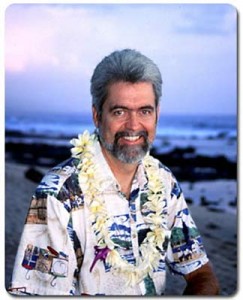Lawmakers Consider Removing Ethanol from Gasoline
** This story has been updated: Bill to Remove Ethanol from Gas Dead This Session
State lawmakers on Thursday will continue discussion on a bill that would remove ethanol from gasoline sold in Hawaii.
The legislation, which has already passed several votes, would repeal the 2006 law that requires gasoline sold in Hawaii contain 10 percent ethanol.
According to the authors of the measure, the 2006 law has failed to meet its objectives which was to reduce the cost of gasoline in the state and to reduce its dependence on imported oil.
At the time that law was passed, several companies had expressed interest in establishing facilities in Hawaii that would have produced ethanol using feedstock grown on existing or former sugarcane fields to replace some of the imported gasoline. However, no such plants have been built. That has meant that gasoline distributors have had to import the ethanol additive, and at a price higher than gasoline.
“As a result, gasoline prices in the State will continue to reflect the added expenses of purchasing ethanol from foreign suppliers and transporting it to the State,” the bill said. “These additional costs to consumers are unnecessary and must be reduced.”
To complicate matters, federal tax credits for producing ethanol expired in 2011. That will further increase the price of ethanol and, ultimately, the cost of gasoline with which it is mixed, the bill said.
House Bill 2322 notes that the addition of ethanol to gasoline also reduces gas mileage. And because ethanol is actually ethyl alcohol, which acts as a solvent, gasoline containing the substance also can do damage to small engines and those in boats and can also dissolve fiberglass fuel tanks.
As a result, the 2006 state law has an “undue hardship” clause that is being used to make non-ethanol gas available for marine and small-engine uses. However, there are just four gasoline stations selling non-ethanol gas on the Big Island, and while the three in Kona are located at or near the Honokohau small boat harbor, in East Hawaii the only source is a gas station in the mauka town of Mountain View. That station is located more than a dozen miles from the nearest boat-launching facility.
Rick Gaffney, president of the Hawaii Fishing and Boating Association, said boaters and fishermen would gladly welcome the repeal of the 2006 law, which he called “the worst thing that has happened to gasoline-powered boats.”
“It’s caused hundreds of thousands of dollars in damages,” Gaffney said, adding that he knows of at least one commercial fishing operation that was driven out of business because of ethanol-related damage to boats.
Because ethanol absorbs water, gasoline containing it is also difficult to store, he said.
Gaffney said East Hawaii boaters are not the only ones inconvenienced by the lack of availability of non-ethanol gasoline. He said boaters using Kawaihae Harbor in South Kohala must either trailer their boats more than 30 miles to the Honokohau area to fill up or transport fuel containers there. The latter also poses a safety threat, he said.
The House Committee on Transportation unanimously approved House Bill 2232 on Jan. 30, and the measure is up for further discussion at 8:30 a.m. Thursday before the Energy and Environmental Protection Committee.
The bill also contains a provision requiring that reports be prepared annually by the Hawaii Department of Business, Economic Development and Tourism on the status of ethanol production in Hawaii, whether that would be enough to fulfill a 10 percent requirement and whether the ethanol mandate should be reinstated.














